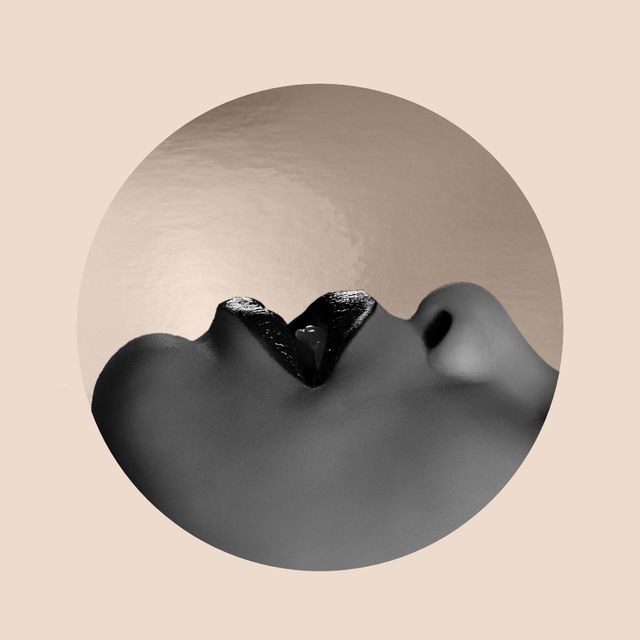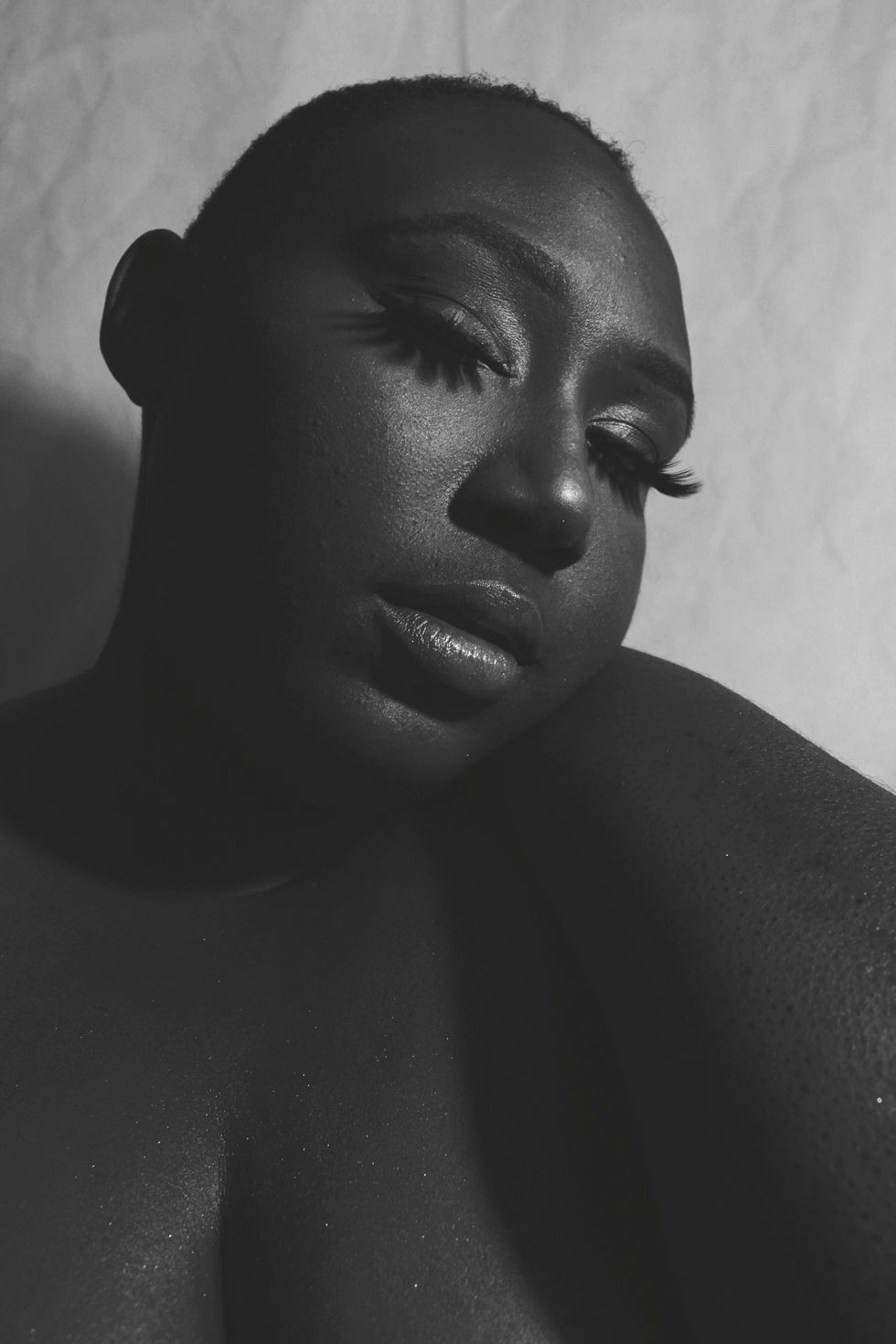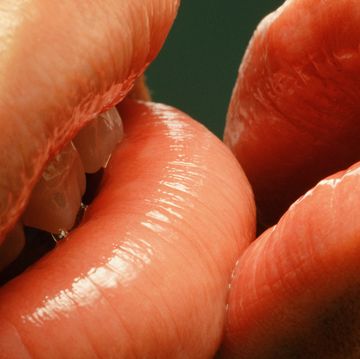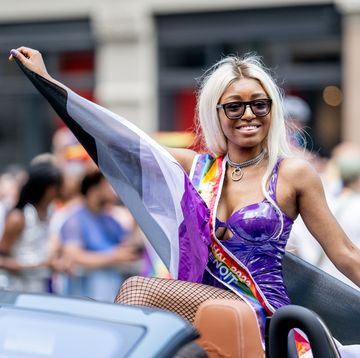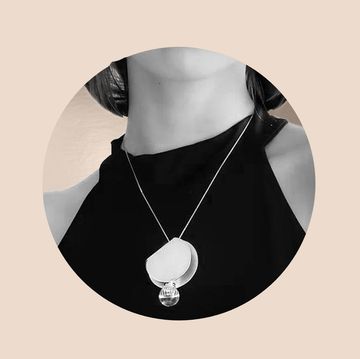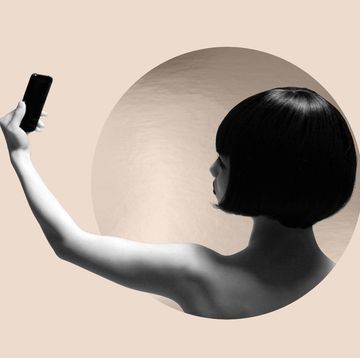I came across a French phrase the other day and it is, quite possibly, the most perfect ever. L'esprit de l'escalier. It captured, for me, a state of being during the pandemic. Translated it literally means the ‘mind of the staircase’. What it refers to, though, is that infuriating feeling of arriving at the perfect comeback, only once you've reached the bottom of the staircase, when it's too late to voice your response. And, well, there’s nothing quite like two years (mostly) by yourself to ruminate over All The Things You Wish You Said, But Didn’t, And Now It’s Too Late.
Case in point, many years ago, a debate involving a rather irate girl at university. There was a discourse brewing in one lecture over E.L. James’s wildly popular - if chronically divisive - erotic novel 50 Shades of Grey. She clearly didn’t care much for the text (which, to be fair to her, many critics labelled as unequivocally dreadful). But it appeared that her main gripe was this: a book that does not contain sex is objectively better than a book that does. Sorry…what? Scenes of a sexual nature do not serve a story was her (non) argument. Regretfully, I did not argue back.
Then again while clearly an extreme opinion, it’s hardly a surprising one. Symptomatic, even, of the way in which collectively we’ve inherited an idea of what eroticism is, and in response to this, how we're supposed to feel about it. 'Erotic' at some point became shorthand for 'non-conformist' or 'underground' sexual activity. Think BDSM and secret group-sex parties. Perceived as clandestine, dark and - as my classmate expounded - inherently shameful.
Living through an era, however, in which many of us have spent extended periods robbed of physical affection, even the embrace of another, and the concept of 'eroticism' has been forced under a microscope. In the absence of being able to go about our sex lives as we ordinarily would, we've had time to dismantle sex, to think about pleasure more intensely, approaching it from all angles, peeling back the complex layers of emotionality involved. Appreciating that eroticism has very little to do with the mechanics of how one physically goes about sex - be that ‘standard’ missionary or masked members' club encounters, neither of which is surprising nor shameful - and a lot more to do with what's happening mentally. 'We tend to think of eroticism as a sexual state shared by two or more people,' according to therapist and author Esther Perel. 'But really, it starts with the individual.'
A recent anthology of literary fiction, Kink, which features stories from the likes of Roxane Gay and Chris Kraus, looked further into this. The book deciphers non-traditional forms of sexual preference as a 'a complex, psychologically rich act of communication' that raises 'questions of power, agency, identity.' Each intensely personal study zones in on the more elemental foundation that binds any sexual treaty for pleasure. An (un)spoken trust, a meeting of the minds. Under which, one can share, verbally or bodily, fantasies that perhaps still hold an element of mystery. Erica Jong’s seminal (and at the time of publication highly controversial) 1973 novel, Fear of Flying, puts it perfectly. In an exploration of a young woman’s sexual psyche, Jong suggests that sex is all in the head. 'Pulse rates and secretions have nothing to do with it,' she says. 'You are what you dream.'
This speaks to a powerful concept that is readily accessible to all of us, partnered or not: erotic futurism. That an image or a thought can stir a person’s sexuality, one that perhaps even exists outside of the realms of present reality. Even in our non-waking hours, our brains are constantly sifting through all sorts of unrealised desires. Sex dreams are wonderfully stimulating for that reason – designed to meet our intrinsically unique psychological needs in the moment. The fact that this experience hasn’t involved another person, physically, is irreverent if the sensation elicits even an ounce of gratification.
‘There’s definitely been a shift in seeing the erotic as [a] state of being and feeling,' Anna Hushlak tells me over the phone, Co-Founder and Chief Scientific Officer of sexual wellbeing app Ferly. 'That may be related to sex but is much more related to the sensual. The more we broaden it, the more it becomes more inclusive as a concept around an experience, a feeling about being connected with oneself. It’s more about the turning on rather than the ‘final’ destination.'
Think of it like a good playlist. You start off with a mood you want to capture. The songs, differing in tone and intensity, they all work together in tandem. To ultimately create, build up to, and discover, something. The adventure is found in this meandering of sensations. Some of the most seductive moments - on screen, in songs, your own memories - can be traced back to those beginning bolts of allure. Desire, fully inhabited, flourishes in this space of ambiguity (Minnie Riperton exemplified this in the opening lines of 'Inside My Love,' that moment of 'two people, just meeting / barely touching each other / two spirits greeting / trying to carry it further…') The playground of pleasure is so much more than an orgasmic chorus. It could be noticing a sudden change in body temperature or tempo of breath. The cognitive reaction to someone’s arm or leg brushing against yours. Flirting. The very specific and very best kind of desperation that occurs when you know you’re about to kiss someone for the first time, and the second, and the third…
Which is to say that sex is whatever you want it to be. It’s as much a state of mind as a purely physical act. These instances of eroticism are all essentially sown into the wider fabric of intimacy. Where that leads to? It doesn’t matter really. So long as you are consenting to the script, the promise is endless and thrilling. These pieces are all part of the same story. To remove it - any of it - would be a travesty. And that, albeit ten years late, is my comeback.
